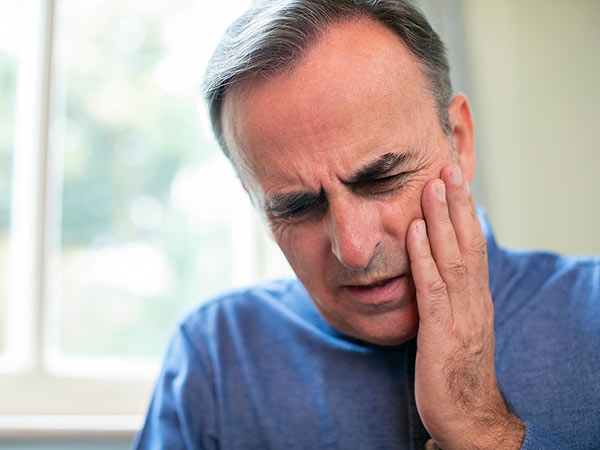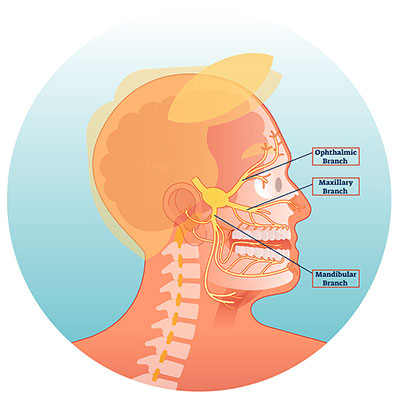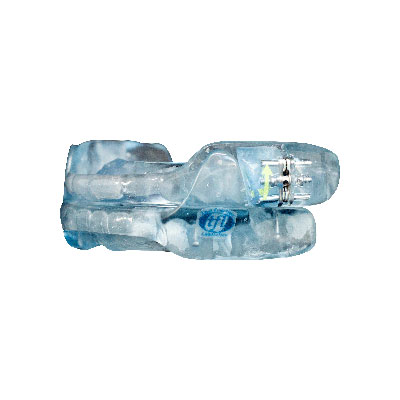
TMD Oral Appliance Therapy
Temporomandibular disorders or dysfunction (TMD) are associated with chronic inflammation and pain attributed to injury, disease, strain or misalignment of the temporomandibular joint (jaw joint).
Patients struggling with TMD may experience a wide range of symptoms, including jaw pain, clicking/popping, headaches, migraines, or facial, neck or shoulder pain. Learn more about TMJ disorder symptoms.
TMD Diagnosis and Treatment
TMJ dentist Dr. Phillip Durden evaluates patients for TMJ disorders at his dental practice, Winterville Dental and at our Dental Sleep Medicine of Athens facility.

As part of your TMJ evaluation, Dr. Durden will talk with you about symptoms and examine your jaw movement to assess your level of function and range of motion. He will also review CT and x-ray images to analyze the position of the jaw joint and the condition of the surrounding muscles, synovial tissues, tendons and cartilage.
The cartilage ‘articular’ disc, located centrally within each jaw joint, serves as a transitional contact point to allow smooth lower jaw (mandible) movement for opening/closing the mouth or shifting the jaw in any direction.
When the TMJ disc is not in the correct position (displaced), jaw movement may be painful or limited; treatment may be necessary to restore healthy, pain-free function. Learn more about TMJ disorders.
Dr. Durden will work with your doctor to address medical conditions that can contribute to TMJ disorders, such as arthritis, obstructive sleep apnea, myofascial pain syndrome, or mental stress or depression that may be linked to teeth grinding (bruxism) or clenching.
Treatment for TMD
Dr. Durden recommends treatment for temporomandibular joint dysfunction based on individual needs, including the alignment, health and function of the TMJ and related conditions and symptoms. The primary objective of TMD treatment is to alleviate pressure on the joint to promote healing and enable pain-free jaw movement.
Dr. Durden may recommend a combination of treatment options for TMD:

Image courtesy of True Function Laboratory
Oral Appliance Therapy for TMD
A removable orthotic (or stabilization) mouth splint may be designed for a TMD patient to change the position of the lower jaw and separate the teeth to reduce the ‘loading forces’ of the bite on the TMJ. Dr. Durden works with a number of FDA-approved mouth appliances that are customized to suit the patient's specific diagnosis and treatment plan. Oral TMD appliances are made of hard or flexible acrylic based on the amount and type of protection required.
A TMD appliance may be worn during sleep or while awake. Some patients have two different appliances for daytime and nighttime wear.
After designing and fitting your TMJ appliance, Dr. Durden will see you periodically to monitor your results and modify the appliance as needed for continual improvement. The goal of oral appliance therapy is to place the jaw in the best position for healing and prevention of further injury or trauma. In cases of articular disc displacement, the TMJ appliance is designed and adjusted to help the jaw muscles to relax and allow the disc to move to the proper position.
Nociceptive Trigeminal Inhibition Tension Suppression System (NTI-tss)
An ‘NTI’ splint is a small oral appliance designed to suppress jaw muscle contraction related to teeth grinding (bruxism) and clenching. Unlike other oral appliances that are designed to cover all of the teeth in the arch, it fits over the front teeth only. The NTI splint prevents the top teeth from touching the lower teeth, eliminating the pressure on the teeth and jaw muscles that would ordinarily occur when a patient clenches their teeth together. An NTI splint is typically worn at night, however daytime use may also be recommended.
Other TMD Support Therapies
In addition to oral appliance therapy, Dr. Durden may recommend additional non-surgical treatment(s), including cold laser, ultrasound, radio frequency or iontophoresis to relieve pain and reduce inflammation. He may also prescribe medications to help relax jaw muscles, along with physical therapy, muscle massage or jaw exercises to strengthen muscles and expand range of motion.
TMD Oral Appliance Therapy at Dental Sleep Medicine of Athens
Patients that have frequent TMD jaw pain and headaches often deal with symptoms for years before realizing there is treatment available. If you or a loved one struggle with TMD symptoms, please don’t hesitate to Contact Us to schedule a TMJ consultation with Dr. Phillip Durden.